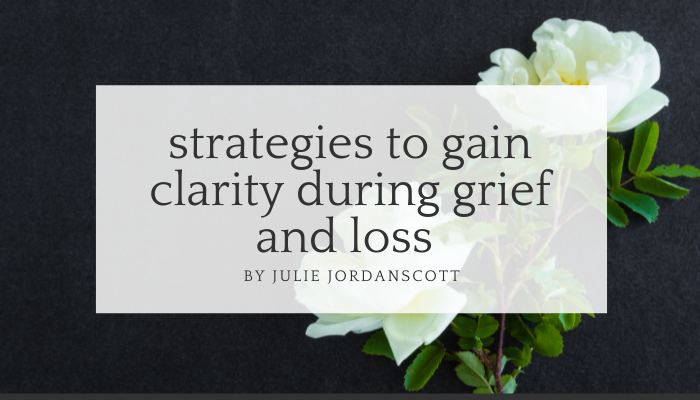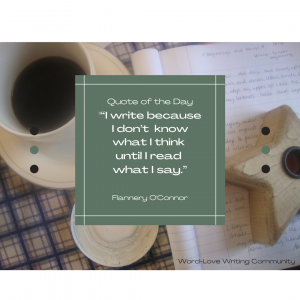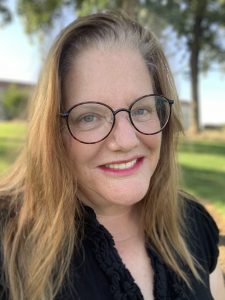Trigger Warning: Death, Murder, Grief.
The Sunday after my father died suddenly, I attended a funeral of my friend, Jodie, who was violently murdered.

The moment came when people were asked to speak. I didn’t want to speak. I didn’t even really want to be there at all, but I was there, so I stood up and found myself in the aisle moving forward.
I realized sometimes our love for people is thankfully larger than our unwillingness to speak or write
I looked down at my feet as I walked. I felt like my clothes were all wrong, I did not want to speak, was worried I might fall on my way to the front of the room.
I was unprepared and I did not want to speak, but there I was ambling forward to speak.
There I went, doing yet another thing I didn’t want to do.
The shock of my father’s death was wrapped around my shoulders as my feet carried me toward the podium to speak extemporaneously – even though it was the last thing I wanted to do – at Jodie’s funeral. I knew her sons might feel better if they heard me remember their Mom. I knew I had a unique and positive perspective to share. I knew I loved Jodie, still love Jodie, and love the common cause we fought for together, year after year.
I was too numb to begin to know what I was going to say, but one of us from Vday needed to speak up and of the women who were there, I was the “senior leader” so it didn’t matter if I was numb, it didn’t matter if I had no idea what I was going to say, it didn’t matter if I was completely unprepared and ill-equipped – I needed to walk up to the microphone and say something, anything.
The moment I finished speaking, I was glad I had chosen to speak.
I can’t even tell you what I said but I do remember afterwards many of Jodie’s family members thanked me for speaking.
Facing death head-on is not how I planned to spend the month of April.
Jodie and I both worked to end violence against women and girls through performances connected with VDay, a movement created by Eve Ensler, who wrote “The Vagina Monologues”, “Emotional Creature” and other plays and books. Jodie and I also protested together, went to the beach together, sang karaoke together, were stage Moms together.
It pains me unmercifully to think the cause of her death is something we fought against. Like our friend and fellow VDay Warrior, Lori, said, “It wasn’t supposed to be like this. We never expected to be at a funeral for Jodie, we were supposed to be alive and on-stage with Jodie.”
It didn’t matter that the next day I would be driving back to Flagstaff to care for my mother and work with my siblings to create my father’s celebration of life. In that moment it didn’t matter that I felt guilty because I knew I would be missing the first hearings for the accused murderer, something important to me as well.
What mattered was holding space for love and being present to love, even after life
What mattered was I walked into the aisle, I walked up the stairs, I stepped up to the mic, took a breath and spoke. My intention was to be positive, truthful and loving and not afraid to show my emotion.
If I had been able to set aside my grief from my father’s death I might have done things differently. I would have remembered the reality that at funerals, people are often called to speak from the audience. I might have thought to jot some notes.
Because I was facing my father’s death shortly after Jodie’s death, I was not at a place to set anything aside, including the knowledge I must speak even if I only stammered out a couple sentences.
No matter how uncomfortable or how scared or how sad I felt, I needed to speak up.
I needed to speak up for Jodie.
Next week I will speak at my father’s funeral, reading a poem I am writing.
Flannery O’Connor said, “I write because I don’t know what I think until I read what I say.”
I have scheduled my out-of-town caretaking and even my doctor’s appointments for the disease I am fighting based on the next hearings for the man accused of Jodie’s murder. I have chosen to continue to write about Jodie consistently so that I will, as Flannery O’Connor suggests, know what it is I truly want to say.
I am working on a poem for my father’s funeral. One line at a time, one sentence at a time, trusting the process of getting words on the page.
In everyday life, if I don’t write, everything gets clogged. My emotions get trapped and my creativity dries up. When grief comes, this clog or this block creates even more of a risk.
Neither Jodie nor my father would want to be the cause of silencing my message. If anything, they would have wanted me to amplify my message. I am following their guidance now.
Because we love, we grieve.
Grief never feels like something we ask for, yet if we have lived a life full of love, we will grieve.
5 Strategies to Help You Express Yourself, especially in times of Grief
- Jot notes of your feelings, even if it is only on your phone or collected in text messages. Your best allies and friends will welcome your notes as you heal.
- Be willing to have uncomfortable conversations. If you are the friend of someone who is grieving, ask for permission to talk about the loss, to use the name of the person who died. I love when people say “Marlena” the name of my baby daughter who died at birth thirty-one years ago.
- Try writing in a journal or use an inexpensive spiral notebook for journaling your healing process. Use a free flow writing style. Do not edit or think before you write, just get your words on the page. A few minutes or pages a day, whatever feels right for you. As you keep your words flowing, you will keep your energy flowing, you will keep your healing flowing.
- Give yourself the gift of being vulnerable. With practice, it gets easier and easier. In my years of practice, one of the best ways to start is to ask the people you are with, “I feel vulnerable saying this and there is a big part of me that doesn’t want to say this…” and give them a chance to respond. Maybe they aren’t in a space to listen and will ask to set a time to talk later. This is a huge victory!
- Find or designate a “safe person” someone you can turn to at any time of day or night if things get difficult. Ironically for me, my safe person is often my notebook. It may take courage to ask someone to fill in this role for you, so you may want to assemble a team. What I have found as a griever and one who supports grieving people is usually those we ask are honored, not bothered, when we ask for support.
Once again, as you keep your words flowing, you will keep your energy flowing, you will keep your healing flowing.
Grief is a process and has a calendar unlike any other. Offer yourself grace and forgiveness. Take your time. Writing and creative process helps the healing process steadily proceed rather than getting stuck. Using the strategies outlined here, hope will begin to grow, too. Love to you.
Julie JordanScott is a Creative Life Coach, Writer, Speaker and Mom extraordinaire who loves working with creative entrepreneurs, artists and healers to get their words written on the page, spoken in their videos and shared across social media platforms with confidence.

